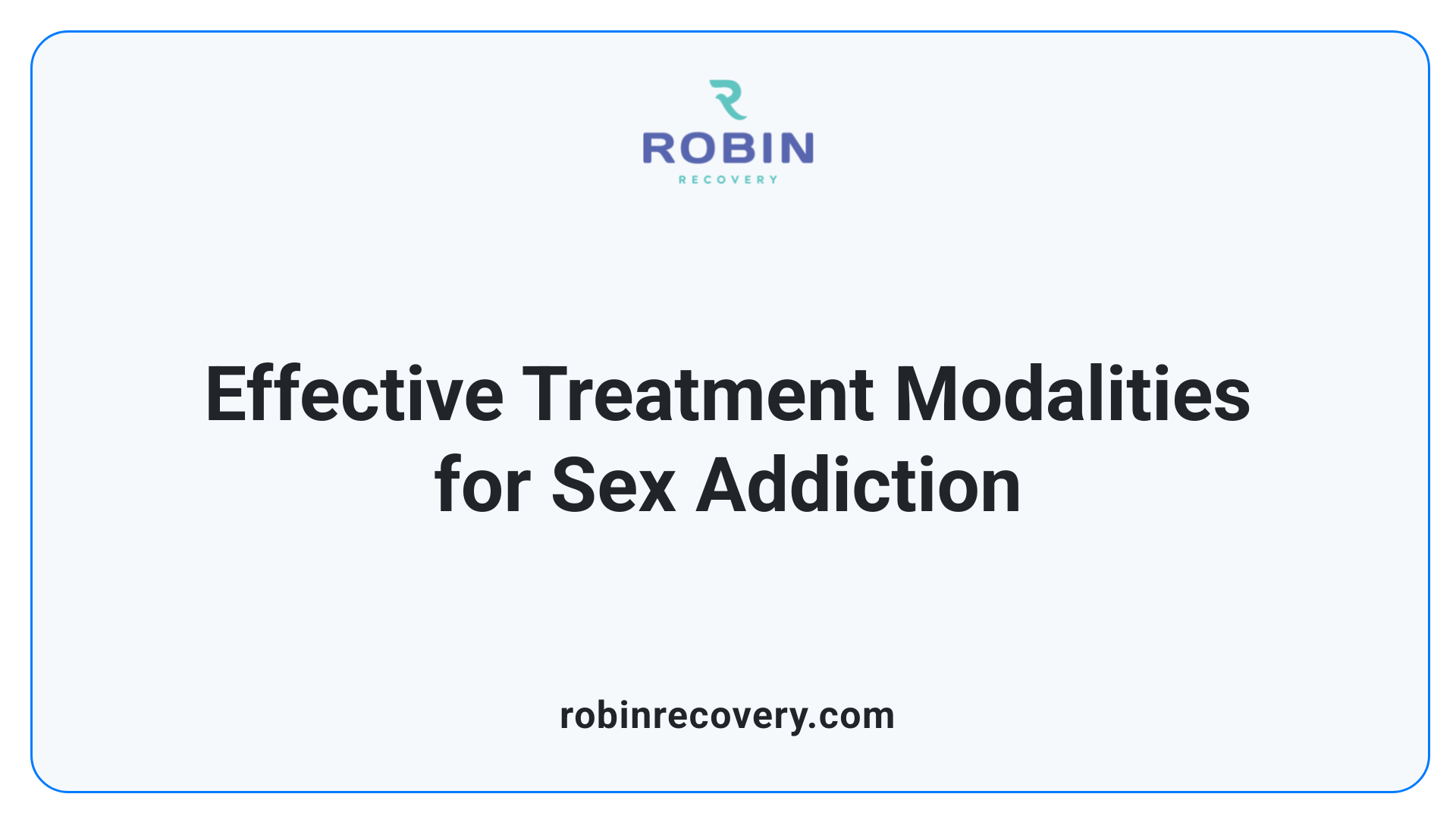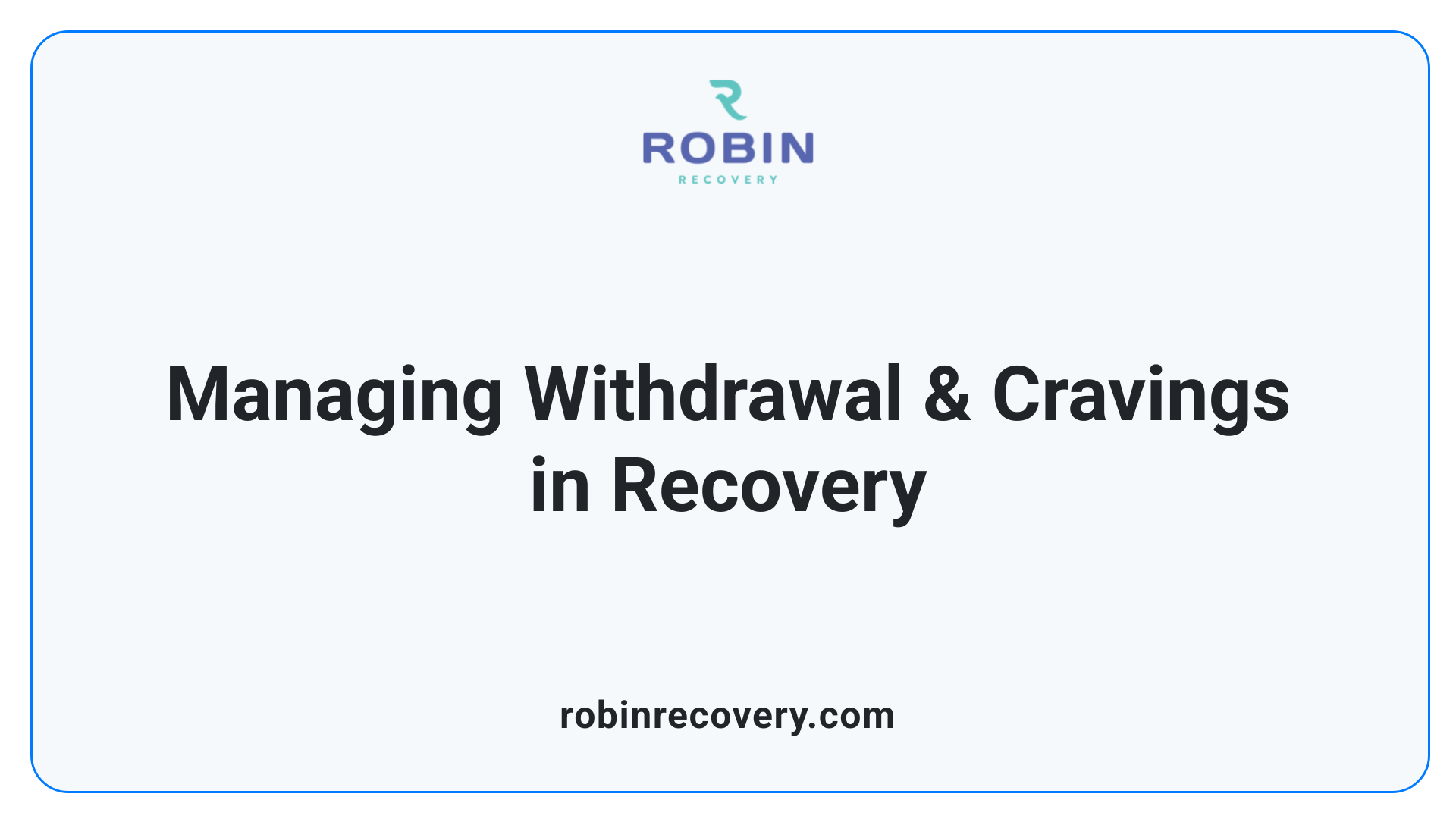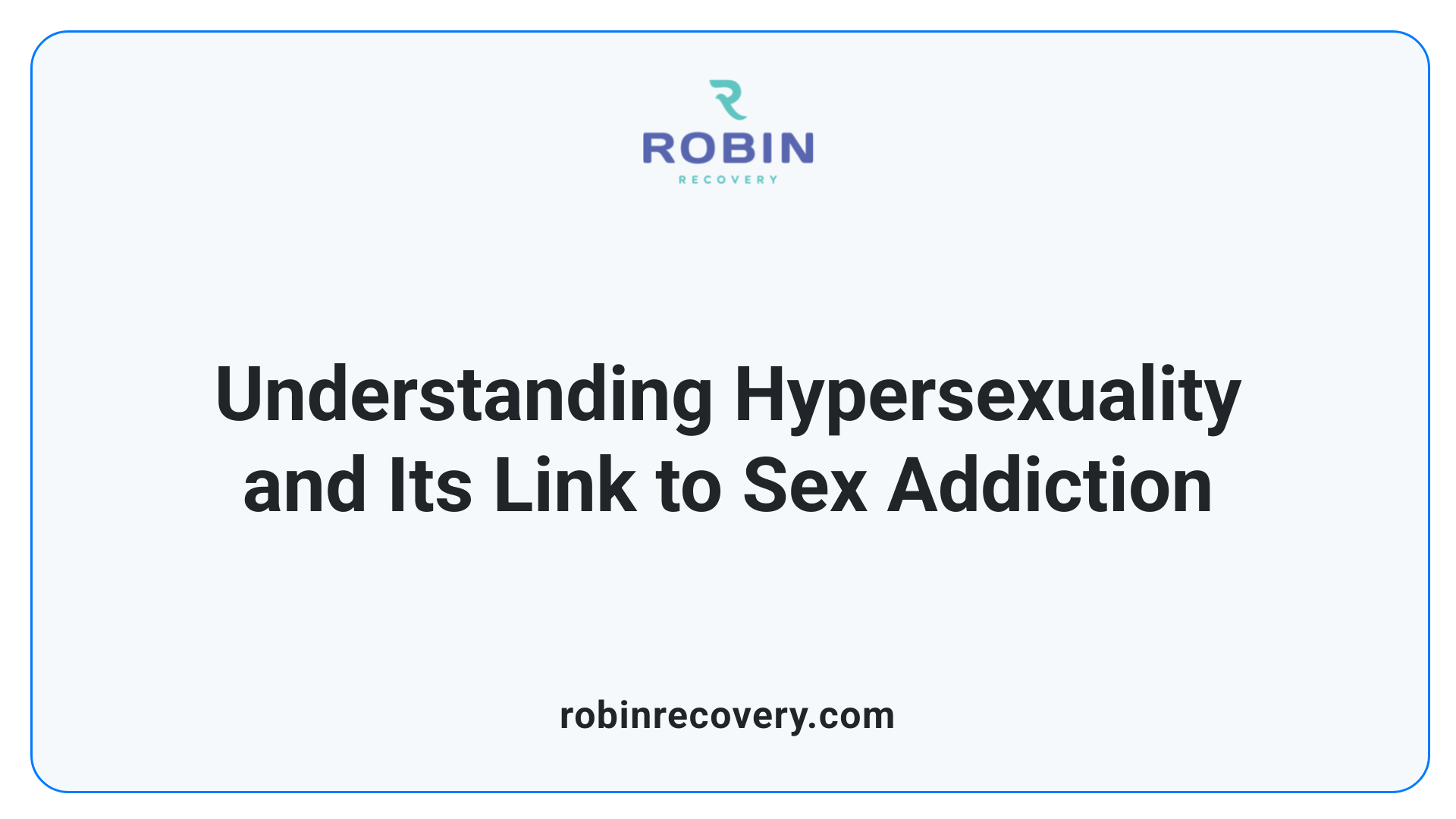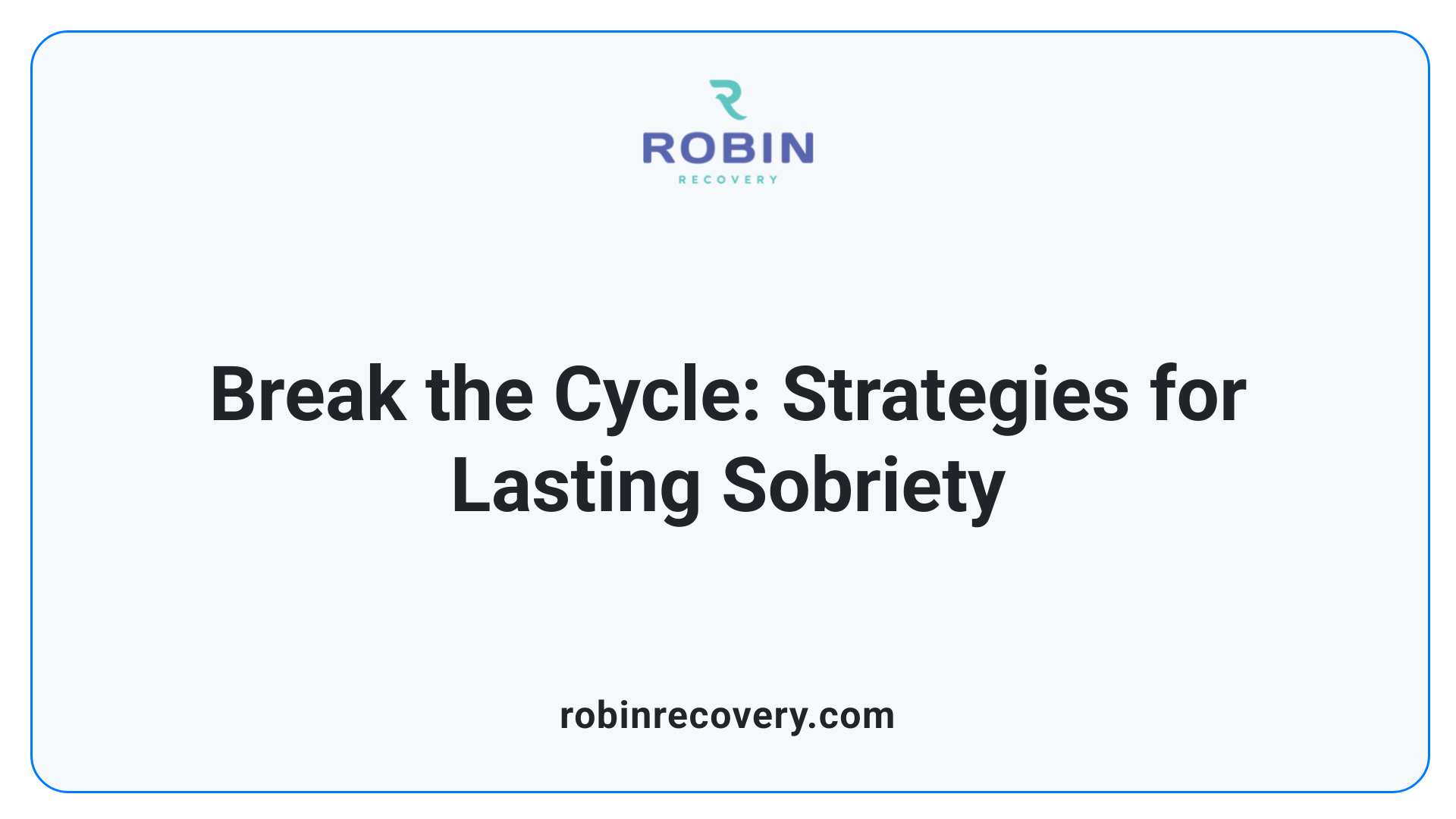How to Stop Sex Addiction

Understanding and Managing Sex Addiction
Sex addiction, also known as hypersexuality or compulsive sexual behavior, is a complex condition characterized by an uncontrollable preoccupation with sexual thoughts, urges, and activities that lead to significant distress, impairment, or harm in various aspects of life. Despite the absence of a formal diagnosis in the DSM-5, it is widely recognized by mental health professionals as a behavioral addiction with serious consequences. This article explores the definitions, clinical features, causes, and effective strategies to stop and manage sex addiction, aiming to empower individuals to regain control and pursue a healthier, balanced life.
Defining Sex Addiction and Its Clinical Features

What is sex addiction and how is it defined?
Sex addiction, also called hypersexuality or compulsive sexual behavior, is a condition where an individual experiences an uncontrollable preoccupation with sexual thoughts, urges, or activities. This obsessive focus often leads to behaviors that are difficult to control and that cause significant distress or harm.
People with sex addiction might spend excessive time engaging in sexual activities such as masturbation, viewing pornography, seeking multiple sexual partners, or participating in risky or illegal sexual acts. Despite knowing the negative consequences—such as relationship breakdowns, financial troubles, or legal issues—they find it hard to limit or stop these behaviors.
Alongside these behaviors, individuals often grapple with feelings of guilt, shame, hopelessness, and remorse. These emotional struggles can also include mental health issues like depression and anxiety, making the condition more complex.
Although the Diagnostic and Statistical Manual of Mental Disorders (DSM-5) does not formally recognize sex addiction as a diagnosable disorder, many health professionals and researchers consider it a behavioral addiction. The International Classification of Diseases (ICD-11) acknowledges a related diagnosis called compulsive sexual behavior disorder (CSBD). Treatment approaches typically involve psychotherapy, medication to manage urges, and participation in support groups. Overall, managing sex addiction requires lifelong effort, emphasizing the need for ongoing support and commitment.
Recognizing the Symptoms and Signs of Sex Addiction

What are the symptoms and signs of sex addiction?
Sex addiction, also known as hypersexuality, manifests through a variety of behaviors and emotional responses. Key signs include obsessive sexual thoughts and fantasies that persist despite efforts to control them. Individuals often engage in compulsive masturbation, excessive pornography consumption, and risky sexual behaviors such as unprotected sex or engaging with multiple partners without regard for safety.
Behaviorally, they may regularly plan or seek out sexual encounters, even at the expense of work, relationships, or personal responsibilities. Many individuals hide their compulsions through deception or secrecy, leading to further emotional distress.
Emotionally, feelings like shame, guilt, depression, and anxiety are common. Withdrawal symptoms can occur if they attempt to stop or cut back, which might include mood swings, irritability, and physical discomfort such as aches or fatigue. Some individuals experience paraphilic behaviors or feel the need to lie about their activities.
The impact of sex addiction extends beyond the psychological realm—affecting relationships, job performance, and overall mental health. Recognizing these signs early can prompt individuals to seek professional help, which is vital for managing the condition effectively.
Exploring Causes and Risk Factors

What are the causes and risk factors associated with sex addiction?
Sex addiction, or hypersexuality, results from a complex interaction of psychological, biological, and environmental elements. Psychologically, individuals with anxiety, depression, or low self-esteem may turn to sexual behaviors as a maladaptive way to cope with emotional distress.
Biological factors also have a significant influence. Disruptions in brain chemistry, especially involving neurotransmitters like dopamine, can reinforce compulsive sexual behaviors by activating the reward pathways in the brain. These neurochemical changes can create a cycle of addiction similar to other substance use disorders.
Environmental and traumatic experiences, such as exposure to sexual content at an early age or history of sexual abuse, can increase vulnerability. Such trauma can alter emotional responses and behavior patterns, making individuals more prone to compulsive sexual activities as a form of coping.
Genetic predispositions and neurochemical imbalances also contribute, although research is ongoing to fully understand their roles. Overall, these factors combine to influence the development of sex addiction, emphasizing the importance of a comprehensive understanding for effective treatment and prevention strategies.
Approaches to Diagnosis and Assessment

How is sex addiction diagnosed?
Diagnosing sex addiction can be complex because it is not officially classified as a mental disorder in the DSM-5. This lack of formal recognition means there are no standardized diagnostic criteria. Instead, mental health professionals rely on a comprehensive clinical approach.
Assessment typically involves detailed interviews where therapists explore the individual’s sexual behaviors, thoughts, and urges. They look for signs such as compulsive engagement in sexual activities despite negative consequences, a persistent preoccupation with sex, and a loss of control over sexual urges.
Psychological evaluations are also used to understand the severity of behaviors and the impact on daily life, relationships, and mental health. Clinicians may observe feelings of guilt, shame, and remorse, along with risky or illegal behaviors.
The ICD-10 describes compulsive sexual behavior as a need to perform sexual acts to get a 'fix,' similar to substance use disorders. Although this terminology is different from the concept of addiction, it highlights the compulsivity aspect.
Currently, assessment tools are still developing, and many depend heavily on subjective reports and clinical judgment. Diagnostic clarity depends on understanding the context, severity, and interference with a person’s functioning.
In summary, diagnosing sex addiction involves a careful examination of behaviors, emotional states, and the impact on life, shaped by the clinician’s expertise and evolving criteria.
Understanding the assessment process is vital for appropriate intervention. It helps distinguish between high sexual activity and compulsive, problematic behavior that warrants treatment.
Treatment Modalities for Sex Addiction

How is sex addiction treated?
Sex addiction, also known as hypersexuality or compulsive sexual behavior, is managed through a multifaceted approach that combines therapy, medication, and support systems. The primary treatment method involves psychotherapy, which aims to help individuals understand and modify the patterns of thoughts and behaviors that drive compulsive sexual activity.
Cognitive Behavioral Therapy (CBT) is commonly used to identify triggers, challenge distorted thoughts, and develop healthier coping strategies. Acceptance and Commitment Therapy (ACT) helps individuals accept their feelings and commit to positive change, while motivational interviewing can enhance motivation for recovery.
Medications also play a role in treatment. Although no medications are FDA-approved specifically for sex addiction, drugs such as selective serotonin reuptake inhibitors (SSRIs), anti-androgens, and naltrexone are often prescribed on a case-by-case basis. These help manage underlying mental health conditions, reduce sexual urges, and rebalance neurochemical activity.
Support groups like Sex Addicts Anonymous (SAA) and similar peer-led organizations provide ongoing support, accountability, and community connection. Attending regular meetings can reinforce recovery and help prevent relapse.
Addressing co-occurring mental health concerns—such as depression, anxiety, bipolar disorder, or substance use—is critical for long-term success. Many individuals find that integrating family therapy, lifestyle adjustments, and spiritual practices further improve their outcomes.
In totality, effective treatment involves a combination of these approaches tailored to each person's unique needs, with a lifelong commitment to managing impulses and maintaining healthy behaviors.
Stages and Strategies for Recovery

What are the stages and recovery strategies for sex addiction?
Recovering from sex addiction typically involves several critical stages that guide individuals towards sustained control over their behaviors. The process begins with acknowledging the problem, which is essential for initiating change. Recognizing the compulsive nature of sexual urges and understanding its impact on personal, social, and professional life lays the foundation for recovery.
Following acknowledgment, individuals move into the stabilization phase, where they learn to manage immediate urges and avoid triggers. This stage often involves engaging in therapy—such as cognitive-behavioral therapy or acceptance and commitment therapy—and participating in support groups like Sex Addicts Anonymous (SAA). During this time, establishing new routines, including regular exercise, mindfulness practices, and hobbies, helps replace unhealthy behaviors.
As progress continues, focus shifts to sustaining sobriety by building resilience against relapse. Developing effective relapse prevention strategies—like identifying personal triggers, maintaining an 'arousal log,' and setting firm boundaries—are critical elements. These strategies help individuals recognize early warning signs and implement coping mechanisms to prevent regressions.
The future phase involves long-term maintenance, where maintaining a support network, engaging in ongoing therapy, and cultivating healthy relationships are vital for lasting recovery. Addressing underlying mental health issues, such as depression or trauma, also plays a significant role in preventing setbacks.
Overall, recovery demands a continuous, holistic commitment. It encompasses emotional, psychological, and behavioral adjustments aimed at leading a balanced and fulfilling life, free from compulsive sexual behaviors.
Managing Withdrawal and Cravings Effectively

What are withdrawal symptoms related to sex addiction?
Withdrawal symptoms from sex addiction are mostly psychological but can also include physical discomforts. Individuals often experience intense cravings to engage in sexual behaviors or look at pornography, which can feel overwhelming and difficult to resist.
Emotional changes are common, such as mood swings, irritability, anxiety, or feelings of depression, loneliness, shame, and guilt. These emotions are part of the withdrawal process as the brain adjusts to the absence of compulsive sexual activity.
Physically, people might face restlessness, trouble sleeping (insomnia), physical agitation, fatigue, headaches, or gastrointestinal problems. Changes in sleep patterns and appetite are also common, contributing to overall discomfort.
During this period, emotional distress may intensify, with feelings of despair, boredom, or grief over lost behaviors. These emotional symptoms can lead to irritability, anger, and frustration, which may tempt individuals to relapse as a way to self-medicate.
Managing withdrawal effectively involves a combination of strategies. Engaging in healthy activities such as exercise, hobbies, and meditation can distract from cravings and improve mood. Seeking professional help, whether through therapy or support groups, provides essential emotional support and guidance.
Practicing mindfulness and relaxation techniques helps individuals stay present and reduce anxiety associated with withdrawal. It is important to recognize these symptoms as a part of recovery, which typically improve over time with consistent effort and support.
When symptoms are severe or unmanageable, it is vital to seek professional help promptly. A mental health professional can tailor treatment plans, including therapy and medication if necessary, to ease the withdrawal process and support long-term recovery.
Hypersexuality and Its Relationship to Sex Addiction

What is hypersexuality and how is it related to sex addiction?
Hypersexuality, often called sex addiction or compulsive sexual behavior, involves an excessive preoccupation with sexual thoughts, urges, or activities. People experiencing hypersexuality find it difficult to control their sexual impulses, despite negative consequences. These behaviors can include frequent sexual fantasies, compulsive relations with multiple partners, or risky sexual acts.
The condition is characterized by persistent, intense sexual desires that often interfere with daily life, relationships, work, or health. A person might spend a lot of time engaging in or planning sexual activities, feeling unable to stop even when they want to. Such behaviors are often accompanied by feelings of guilt, shame, or remorse afterward.
While hypersexuality shares many features with what is often called sex addiction, it is important to note that it is not officially classified as a distinct mental disorder in the DSM-5. However, it is acknowledged in other systems like ICD-11 as a compulsive sexual behavior disorder (CSBD). Both terms describe a problematic pattern where sexual urges become uncontrollable, leading to distress or harm.
The origins of hypersexuality are not fully understood. Causes may include neurochemical imbalances, emotional trauma, past abuse, or medication side effects. Mental health conditions such as bipolar disorder and substance abuse can also heighten sexual preoccupations.
Treatment approaches typically combine psychotherapy—like cognitive-behavioral therapy (CBT), acceptance and commitment therapy, or trauma-focused therapy—and support groups, such as Sex Addicts Anonymous. Sometimes, medications like antidepressants or mood stabilizers are prescribed to help manage symptoms.
In summary, hypersexuality and sex addiction describe similar patterns of uncontrollable sexual behaviors that can significantly impact well-being. Recognizing these patterns and seeking appropriate help are crucial steps in managing symptoms and reducing harm.
Resources, Support Systems, and Long-term Management

When managing sex addiction, a range of resources and support options are available to assist individuals on their recovery journey.
Support groups and community resources play a vital role. Groups such as Sex Addicts Anonymous (SAA), Sexaholics Anonymous, and similar 12-step programs offer peer support, accountability, and structured recovery pathways. These groups focus on shared experiences and mutual encouragement, which can help reduce feelings of isolation and shame.
Professional treatment is another cornerstone of long-term management. This typically includes individual, couples, and family therapy employing approaches like cognitive-behavioral therapy (CBT), acceptance and commitment therapy (ACT), and trauma-informed care. Mental health professionals may also prescribe medications such as antidepressants, anti-androgens, naltrexone, mood stabilizers, and anti-anxiety drugs. These medications aim to reduce compulsive urges, address co-occurring mental health conditions, and support sobriety.
Educational materials are essential for understanding the nature of sex addiction. Books authored by experts and reputable online resources can empower individuals with knowledge about their condition, helping them recognize triggers and develop effective coping strategies. Digital tools, including apps and monitoring software, allow individuals to track urges, identify patterns, and prevent relapse.
For ongoing support, organizations like the Substance Abuse and Mental Health Services Administration (SAMHSA) offer a National Helpline that provides free, confidential referrals to local treatment facilities, support groups, and community resources available 24/7.
Maintaining a healthy lifestyle is crucial. Incorporating regular exercise, meditation, hobbies, and social activities can help manage urges and foster emotional well-being. Addressing underlying issues, such as trauma, substance use, or mental health disorders, through comprehensive treatment plans, enhances the chances of sustained recovery.
Ultimately, managing sex addiction is a lifelong process. Consistent engagement with support networks, therapy, medication (if prescribed), and positive lifestyle changes form the foundation of effective long-term care. Recognizing that recovery is ongoing helps individuals stay committed to their wellness and rebuild healthy relationships.
Disrupting the Sexual Addiction Cycle and Ensuring Long-Term Sobriety

What is the sexual addiction cycle and how can it be interrupted?
The sexual addiction cycle typically involves six stages: a triggering event or emotional pain, the onset of obsessive thoughts called triggers, preoccupation with sexual fantasies, ritualistic behaviors, acting out sexually, and feelings of despair afterward. This cycle often begins with unresolved emotional wounds or stress, which set off triggers that evoke intense, unwanted sexual thoughts.
As the cycle continues, individuals may engage in compulsive behaviors such as masturbation, visiting sex workers, or other risky sexual activities to seek relief. These actions often lead to feelings of guilt, shame, or remorse, fueling further preoccupation and perpetuating the pattern. If unchecked, this cycle can cause serious consequences like damaged relationships, legal problems, and health risks.
Interrupting this harmful pattern requires a multi-faceted approach. Recognizing each stage of the cycle is the first step toward disruption. Therapy, especially cognitive-behavioral therapy, helps identify triggers and emotional roots, while accountability through support groups fosters honesty and encouragement. Spiritual resources like prayer or meditation can also support emotional resilience.
Developing coping skills, such as engaging in healthy distractions like exercise, meditation, or hobbies, aids in reducing reactive behaviors. Keeping a log of thoughts and urges—often called an arousal or behavior diary—can help track warning signs.
Building a strong support network and practicing mindfulness contribute significantly to maintaining sobriety. The goal is not only to break the immediate cycle but also to establish sustainable habits that promote long-term recovery. Through consistent effort and support, individuals can regain control, reduce relapse risks, and work toward a healthier, balanced life.
Empowering Change and Sustaining Recovery
Stopping sex addiction requires recognition of the problem, comprehensive treatment, and ongoing commitment. With professional therapy, medication, support groups, and lifestyle adjustments, individuals can break free from compulsive behaviors and restore control over their lives. Awareness of the addiction cycle, managing triggers, and developing healthy routines are vital for long-term recovery. Support systems and continuous education further strengthen resilience, helping individuals build fulfilling, balanced relationships and avoid relapse. Remember, recovery is a journey—practice patience, seek support, and believe in the possibility of change.
References
- Sex Addiction: Causes, Symptoms, Treatment & Recovery
- How to Manage a Sex Addiction | KeyStone Center ECU
- 5 Common Sex Addiction Withdrawal Symptoms - Therapy Utah
- Sex Addiction: Symptoms, Treatment, and Outlook - Healthline
- Understanding and Managing Compulsive Sexual Behaviors - PMC
- What Is a Nymphomaniac? - Verywell Health
- Signs and Symptoms of Sex Addiction - WebMD
- Sex Addicts Anonymous - SAA
- Sex Addiction Treatment - American Addiction Centers
- How to Break the Sexual Addiction Cycle
